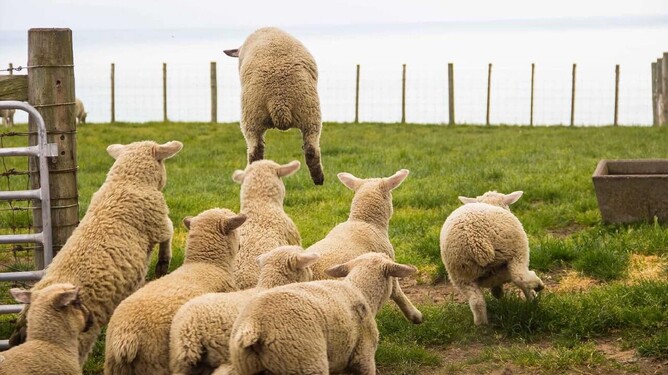Take some preventative steps to help keep freshly weaned lambs healthy.
The most common form of weaning in NZ is abrupt weaning. This is the sudden and complete separation of the ewe and her lambs, avoiding visual, auditory or olfactory contact after weaning.
Abrupt weaning generates behavioural, physiological and immunological responses in the lamb, affecting their health and growth, increasing their susceptibility to disease and decreasing weight gain.
Pneumonia
One of the most common issues we see around weaning is chronic, non-progressive pneumonia. This can be caused by bacteria, mycobacteria and certain viruses. Symptoms are often subclinical, but lambs may pant, have trouble breathing and cough with exercise.
Lambs with pneumonia are more likely to develop pleurisy, where their lungs stick to their chest wall. Where more than 20% of the lung surface is affected, growth rates are halved. These carcassess are downgraded or condemned at processing plants.
Studies show that an average of 24% of lambs on any farm are affected by pneumonia. A number of activities at weaning influence its development, including, but not limited to:
Drenching
Shearing
High temperatures and humidity
Dust
Excessive exercise
Crowding
Poor ventilation
Low immunity
High parasite burdens.
Preventative steps
A healthy, well-fed lamb, under minimal stress, is much less likely to develop pneumonia at weaning. There are also a number of preventative steps you can take to minimise the development of pneumonia and pleurisy, including:
Drenching and/or shearing lambs pre- or post-weaning, not on the same day;
Utilise your satellite yards to keep yarding time to a minimum, reduce overcrowding in the shed and to enable you to bring smaller groups into the yards;
Muster early morning and in the evening when it is cooler and less humid;
Water the yards to reduce dust;
Minimise yarding and mustering post-weaning (e.g. if you are doing regular weighing);
Minimise the use of dogs in yards;
Minimise the use of vehicles and dogs when moving lambs and let them go at their own pace. By moving them slowly, you reduce the extent and duration of open mouth panting;
Keep yarding time to a minimum.

